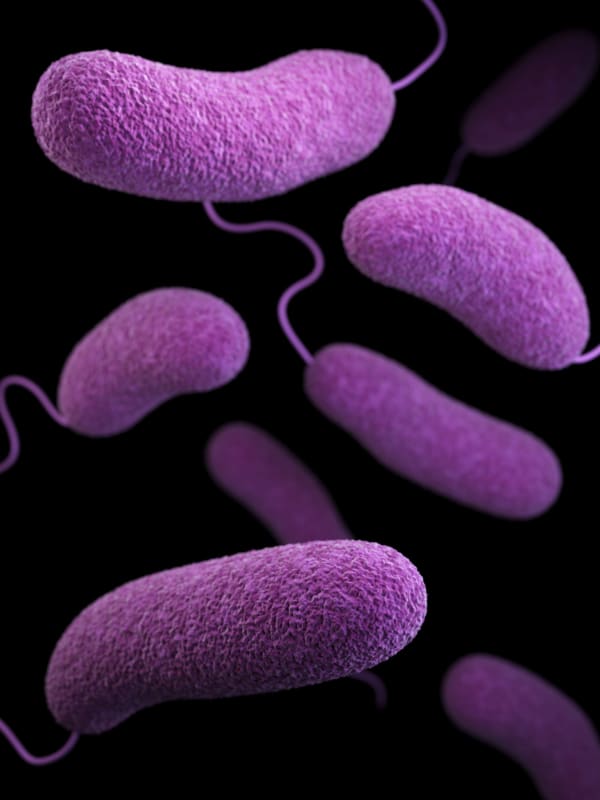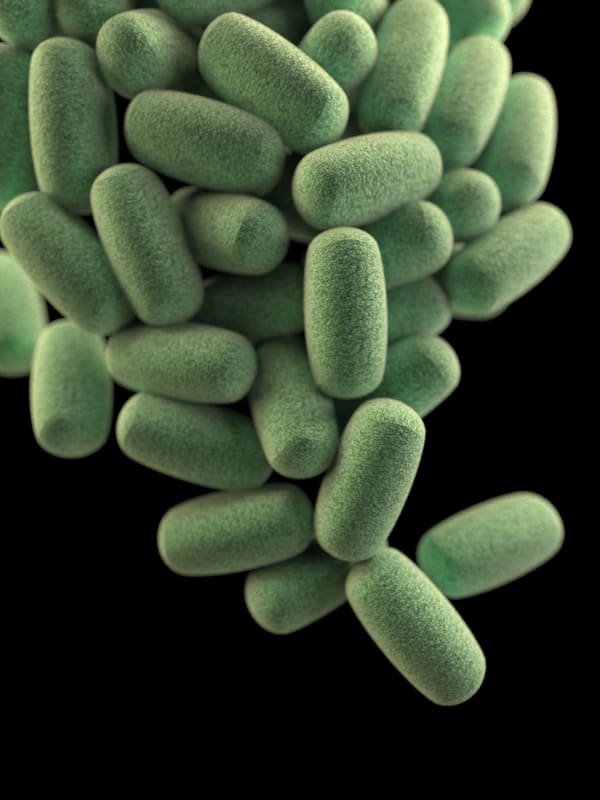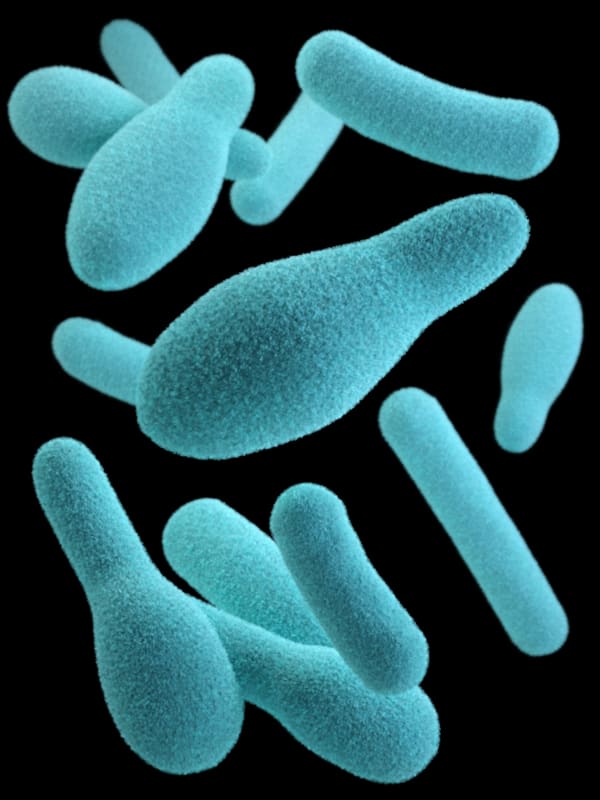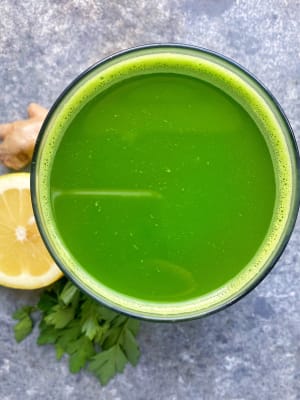An Exploration of the Gut-Brain Axis

An Exploration of the Gut-Brain Axis
Most people have experienced a “gut-feeling” but is there something more to this common phenomenon?
You may have heard of the "gut-brain axis" (GBA) which refers to the two-way communication system between the gut and the brain.
The gut and brain are connected both physically and biochemically, and over the past several years, studies have established a link between gut health and mental health.
A large portion of serotonin, a neurotransmitter called "the happy hormone," is produced in the gut, not the brain.
So, there actually is something more behind the timeless expressions like “having a gut feeling,” someone “giving you butterflies," or your “stomach being in knots.” When you have those thoughts and feelings in your brain, you are also experiencing them physically in your gut.
Through the existence of the GBA, there is growing evidence to support the role of our gut health in managing and even preventing specific mental health issues. Several studies have now shown that people with depression have different gut microbes from people without depression.
What we know right now is that people with depression appear to have alterations to their gut bacteria and that improving gut health appears to reduce depression and improve mood.

Understanding the Vagus Nerve
The vagus nerve is an essential part of the GBA as it is one of the largest nerves connecting the gut and the brain.
The vagus nerve transmits signals between the gut and the brain and plays an in inflammation, digestion, and regulating food intake and satiety. essential role
Studies are looking specifically at the vagus nerve for its role in the GBA and have found some interesting things. Studies have shown that stress can inhibit the signals sent through the vagus nerve and cause GI issues.
For example, we know that stress disrupts digestion. Another study showed that people with digestive disorders, like IBS and inflammatory bowel diseases such as Crohn’s and Colitis, had reduced vagal tone resulting in reduced function of the vagus nerve.

Exploring Psychobiotics
A new area of interest in gut health and the gut-brain axis is the concept of psychobiotics, which are specific strains of probiotics that may impact mood and mental health.
Although this area of gut health research is still developing, some fascinating studies are taking place in the medical community.
Studies have shown improvement in depression and anxiety symptoms associated with particular strains of probiotics.
Studies have also demonstrated that the brain activity of subjects receiving a probiotic supplement significantly changed compared to the placebo group, suggesting that they were better able to cope with negative emotions and, therefore, a lessened risk of developing low mood.

Gut Benefits of the Mediterranean Diet
The Mediterranean diet, known to be the gold standard for supporting gut health, has also been associated with improved mental health.
A 2017 study from showed that people following a Mediterranean diet (high fibre, high polyphenols) had significant improvement in depressive symptoms.
Subjects with moderate to severe depression were randomized to receive either Mediterranean dietary advice delivered by a dietitian for 12 weeks or a type of counselling to act as the “placebo” intervention.
The study's results were remarkable, showing that those following the Mediterranean diet had a much more significant improvement in happiness levels than the placebo.
According to the study's post-study depression questionnaires, over 30 per cent of those in the Mediterranean diet group improved to a level deemed "clinical remission".
Lifestyle Impacts On The Gut-Brain Axis
There are modifiable factors that influence gut health and mental health that various lifestyle interventions can impact.
Diet
- New research shows that high-fibre or "gut-healthy" diets can significantly improve mental health.
Stress Management
- We know that chronic stress can disrupt the bacteria in your gut, which can cause inflammation and damage to your intestine.
- Stress management activities (such as yoga and meditation) can significantly impact gut symptoms and mental health.
- A 2017 study showed that yoga was nearly as effective in managing IBS symptoms as a low FODMAP diet.
Alcohol
- Alcohol can negatively impact gut bacteria diversity and worsen mental health symptoms.
Exercise
- Research has shown that those who exercise regularly have increased gut microbiota diversity.
- Exercise is also known to have a significant positive impact on mental health and the release of endorphins.
Sleep
- Poor sleep significantly contributes to negative digestive symptoms and an increased prevalence of mental health symptoms.
- There is growing evidence that your gut microbiome and sleep are interconnected via the GBA and that microbial diversity can affect total sleep time and quality.
- Not only does poor quality sleep impact our microbes, but it is also associated with increased inflammation and stress hormones. This anatomical relationship may explain why lack of sleep often worsens gut symptoms, particularly for those with IBS.
- Poor sleep also impacts our hunger and satiety hormones, ghrelin and leptin, which are responsible for regulating our food intake.
- Lastly, a lack of abundance and diversity in our gut microbiome, or poor gut health, is associated with reduced serotonin in the gut, which is known to affect sleep-wake cycles.
The gut-brain axis refers to both the physical and chemical connections between your gut and brain. Bacteria in the gut are in constant communication with the brain via. neurotransmitters, chemicals and nerves. By altering the biodiversity of bacteria in your gut, it is possible to positivly affect your brain.
The gut-brain axis is a rapidly emerging field of research with vast potential. The reality is that a diverse and abundant gut microbiome can only support our mental and overall health.
Breit, S., Kupferberg, A., Rogler, G., & Hasler, G. (2018). Vagus Nerve as Modulator of the Brain-Gut Axis in Psychiatric and Inflammatory Disorders. Frontiers in psychiatry, 9, 44. https://doi.org/10.3389/fpsyt.2018.00044
Fornaro, R., Actis, G. C., Caviglia, G. P., Pitoni, D., & Ribaldone, D. G. (2022). Inflammatory Bowel Disease: Role of Vagus Nerve Stimulation. Journal of clinical medicine, 11(19), 5690. https://doi.org/10.3390/jcm11195690
Kanai, T., & Teratani, T. (2022). Brain and nerve = Shinkei kenkyu no shinpo, 74(8), 971–977. https://doi.org/10.11477/mf.1416202163
Lassale, C., Batty, G. D., Baghdadli, A., Jacka, F., Sánchez-Villegas, A., Kivimäki, M., & Akbaraly, T. (2019). Healthy dietary indices and risk of depressive outcomes: a systematic review and meta-analysis of observational studies. Molecular psychiatry, 24(7), 965–986. https://doi.org/10.1038/s41380-018-0237-8
Lowe, P. P., Gyongyosi, B., Satishchandran, A., Iracheta-Vellve, A., Cho, Y., Ambade, A., & Szabo, G. (2018). Reduced gut microbiome protects from alcohol-induced neuroinflammation and alters intestinal and brain inflammasome expression. Journal of neuroinflammation, 15(1), 298. https://doi.org/10.1186/s12974-018-1328-9
Marotta, A., Sarno, E., Del Casale, A., Pane, M., Mogna, L., Amoruso, A., Felis, G. E., & Fiorio, M. (2019). Effects of Probiotics on Cognitive Reactivity, Mood, and Sleep Quality. Frontiers in psychiatry, 10, 164. https://doi.org/10.3389/fpsyt.2019.00164\
McGuinness, A. J., Davis, J. A., Dawson, S. L., Loughman, A., Collier, F., O'Hely, M., Simpson, C. A., Green, J., Marx, W., Hair, C., Guest, G., Mohebbi, M., Berk, M., Stupart, D., Watters, D., & Jacka, F. N. (2022). A systematic review of gut microbiota composition in observational studies of major depressive disorder, bipolar disorder and schizophrenia. Molecular psychiatry, 27(4), 1920–1935. https://doi.org/10.1038/s41380-022-01456-3
Monda, V., Villano, I., Messina, A., Valenzano, A., Esposito, T., Moscatelli, F., Viggiano, A., Cibelli, G., Chieffi, S., Monda, M., & Messina, G. (2017). Exercise Modifies the Gut Microbiota with Positive Health Effects. Oxidative medicine and cellular longevity, 2017, 3831972. https://doi.org/10.1155/2017/3831972
Ochoa-Repáraz, J., & Kasper, L. H. (2016). The Second Brain: Is the Gut Microbiota a Link Between Obesity and Central Nervous System Disorders?. Current obesity reports, 5(1), 51–64. https://doi.org/10.1007/s13679-016-0191-1
Ridaura, V., & Belkaid, Y. (2015). Gut microbiota: the link to your second brain. Cell, 161(2), 193–194. https://doi.org/10.1016/j.cell.2015.03.033
Schumann, D., Langhorst, J., Dobos, G., & Cramer, H. (2018). Randomised clinical trial: yoga vs a low-FODMAP diet in patients with irritable bowel syndrome. Alimentary pharmacology & therapeutics, 47(2), 203–211. https://doi.org/10.1111/apt.14400
Smith, R. P., Easson, C., Lyle, S. M., Kapoor, R., Donnelly, C. P., Davidson, E. J., Parikh, E., Lopez, J. V., & Tartar, J. L. (2019). Gut microbiome diversity is associated with sleep physiology in humans. PloS one, 14(10), e0222394. https://doi.org/10.1371/journal.pone.0222394
Swann, O. G., Kilpatrick, M., Breslin, M., & Oddy, W. H. (2020). Dietary fiber and its associations with depression and inflammation. Nutrition reviews, 78(5), 394–411. https://doi.org/10.1093/nutrit/nuz072
Wallace, C., & Milev, R. (2017). The effects of probiotics on depressive symptoms in humans: a systematic review. Annals of general psychiatry, 16, 14. https://doi.org/10.1186/s12991-017-0138-2




